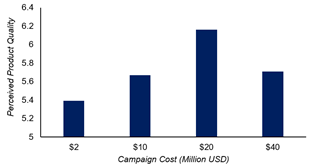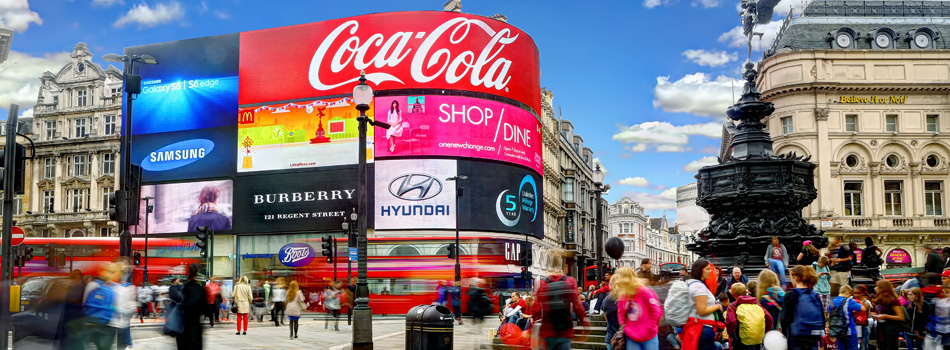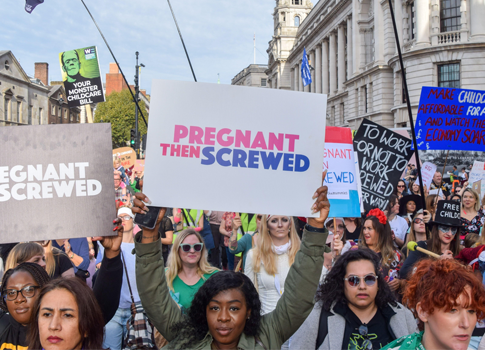#8 Costly signalling: how extravagant advertising boosts the believability of the message
Costly signalling suggests that believability and trust in a message are proportionate to the perceived expense of the message.
Evidence: In 1989, Duke University’s Amna Kirmani and Stanford University’s Peter Wright, tested the extent to which perceived ad spend acts as a costly signal.
They gave 214 participants a magazine article describing the launch of a new trainer, which included the total campaign spend. Some readers were told the spend was $2m others that it was $10m, $20m or $40m. As a benchmark, the article also referred to what global athletic brands (e.g. Nike and New Balance) typically spend on new product launches – around $10m.
Participants were then asked to indicate the quality of the shoe on a nine-point scale. The mean results for each group were: $2m = 5.39, $10 = 5.67, $20m = 6.16, $40m = 5.71.
Perceived quality increases with spend, peaking at +14% for the $20 million spend. However, when deemed excessive ($40), quality ratings are undermined.

Source: Adapted from Kirmani & Wright’s (1989) findings
Recommendation:
Kirmani’s experiment suggests that the quality perceptions correlate with the perceived spend of a brand (unless that spend is completely out of kilter with the market).
Kirmani suggests that this is because audiences recognise that extravagant advertising only pays back in the long term. So, only a brand that has genuine faith in their products would spend in this manner. These brands know that if they can entice buyers to try them, customers will come back again and again, making the ads profitable. Whereas brand owners with a shoddy product know shoppers might buy them once but they won’t return. For this group extravagant spends are uneconomical.
This difference means lavish ads acts as a screening mechanism. It conveys a message that mere claims can’t emulate. Marketers should note that larger formats are not necessarily wasteful but a way of harnessing the principle of costly signaling.






